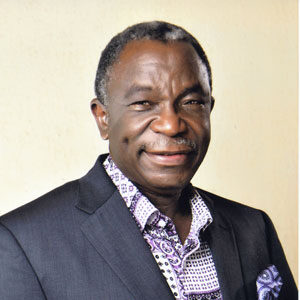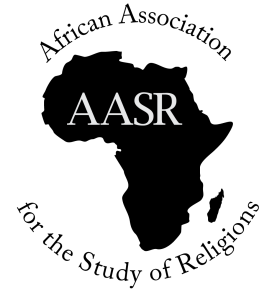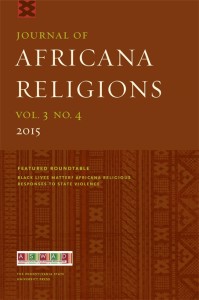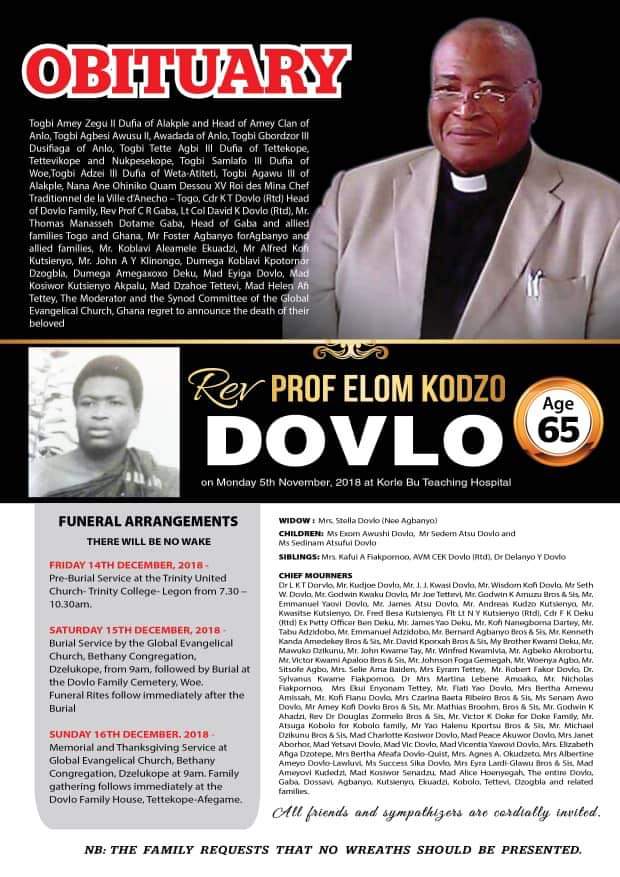2018
Holiday Greetings from AASR President Elias Kifon Bongmba
Dear Colleagues,
I send you holiday greetings on behalf of the Executive of the African Association for the Study of Religions. Thank you for your AASR membership and participation that has made us grow over the years.
2018 has been a fantastic year for us. First, the Biennial Conference held in Lusaka was a great success. I extend our thanks to the University of Zambia and the Justo Mwale University for hosting us. The Co-Chairs of the Local Organizing Committee, Dr. Marja Hinfellar, and Dr. Judith Ziwa and all the members of the committee did a fantastic job in putting together the conference on short notice, and we thank them for this service. We thank the International Association for the History of Religions, IAHR, for the generous support of our Lusaka conference. We also express our appreciation to many of you who presented papers at this conference and invite you to consider presenting papers at the next Biennial Conference that will hold in Senegal in 2020. Our Vice President, Dr. Damaris Parsitau, is in conversation with the Executive Director of the Council for the Development of Social Science Research in Africa (Codesria), and we will give you further updates in the New Year. We encourage you to prepare for that conference as well as the 22nd Quinquennial World Congress of IAHR that will convene at the University of Otago in 2020.
Second, we thank all of you who presented papers at the American Academy of Religion (AAR) and Society for Biblical Literature (SBL) during the annual meeting in Denver, Colorado. In preparation for 2019, we encourage you to send paper and panel proposals when the call for papers goes out. Consider also sending paper and panel proposals for the African Studies Association (ASA).
Third, we want to extend our congratulations to Professor Jacob Kehinde Olupona of Harvard University for receiving the Martin E. Marty Award for the Public Understanding of Religion from the American Academy of Religion. Many of you attended the award ceremony and later joined us for dinner at an Ethiopian Restaurant in Denver to celebrate the accomplishment and leadership of Professor Olupona.
Fourth, we congratulate Professor Gerrie ter Haar for the recognition that she received this year with a Life Time Membership in the International Association for the History of Religions (IAHR).
Fifth, we have signed a memorandum of understanding to collaborate with the Journal of Africana Religions, a peer-reviewed journal edited by Professors Edward E. Curtis and Sylvester A. Johnson and published by The Pennsylvania State University Press. We thank Professors Curtis and Johnson for leading this initiative and encourage you to consider submitting your work to this journal as well as book series that the journal has with the press for consideration. This amazing initiative adds to the journal list we support, including the AASR Ejournal, and the Journal of Religion in Africa.
Sixth, we are exploring opportunities for our web services that includes finding a new host and home. The move to a new hosting service is the first for us and involves a large budget for these services. I encourage all of you to pay your annual membership dues and consider making a generous gift to AASR to facilitate this transition. We have functioned and maintained a presence on the World Wide Web, at no cost at least during my tenure, and we have Professor Jan Platvoet and Professor Melissa Browning and Wes Browning to thank for their dedicated service. They will work with Dr. Sara Fretheim our Web and Social Media specialist to effect this transition. The success of this transition depends on our generosity, and I appeal to all of you to consider making a gift to make this work smoothly so that we do not lose our ability to communicate with all of you.
Thank you.
Sincerely,
Elias Kifon Bongmba
President
2018
Announcing a Partnership with the Journal of Africana Religions!
A letter from our President, Elias K. Bongmba, outlining an exciting new initiative with the Journal of Africana Religions, followed by our joint press release. Read on!
Dear Colleagues of the AASR Community,
The executive of AASR has received, discussed, and approved an invitation from Professor Sylvester Johnson and Professor Edward Curtis, editors of the Journal of African Religions, for the African Association for the Study of Religions to collaborate closely with the Journal of Africana Religions. This is a new chapter for us, but also similar to the ties we have with the Journal of Religion in Africa.The journal also edits a book series in Africana Religions and recent authors who have published in the series include Oludamini Ogunnaike and Adriaan van Klinken. Please do take some time and look at the description of the series here.
We are delighted to tell you that as part of this collaboration, the editors of the journal have informed us that AASR members based in Africa will receive free subscriptions to the journal. Our members who live outside Africa will receive discounted subscription to the journal.
We invite all our members to be part of this expanded intellectual collaboration because it further fulfills one of our goals of strengthening our growing intellectual community in Africa and the African diaspora.
Sincerely,
Elias K. Bongmba
President, AASR
# # # # # FOR IMMEDIATE RELEASE # # # # #
CONTACT:
Sara Fretheim, sara@sarafretheim.com
Edward Curtis, ecurtis4@iupui.edu
RELEASE DATE: November 29, 2018
AFRICAN ASSOCIATION FOR THE STUDY OF RELIGIONS AND JOURNAL OF AFRICANA RELIGIONS ANNOUNCE GROUNDBREAKING PARTNERSHIP
Today the African Association for the Study of the Religions (AASR) and the Journal of Africana Religions announced a multifaceted partnership that will advance the global study of Africana religions.
“This is a new chapter for us,” said AASR President Elias Bongmba, who is the Harry and Hazel Chavanne Chair in Christian Theology at Rice University. “It significantly strengthens our growing intellectual community in Africa and the African diaspora.”
The new partnership’s most ambitious component is the creation of pan-Atlantic research teams that will unite scholars from Africa, the Americas, and Europe for collaborative research and writing. “In some cases,” according to Journal of Africana Religions co-founder and Virginia Tech Humanities Center Director Sylvester Johnson, “these will be mentoring relationships between senior and junior scholars. In other cases, the pairs will be composed of professors of equal rank. Whatever the case, the pairings must be mutually beneficial.”
“If these research pairings work the way we want them to,” added journal co-founder and IUPUI Millennium Chair of the Liberal Arts Edward Curtis, “some of them will lead to joint authorship of book manuscripts that we will want to consider for publication.” In addition to editing the journal, Johnson and Curtis are the editors of a Penn State University Press book series on Africana religions.
Under the new partnership agreement, AASR will become a Journal of Africana Religions sponsor, and AASR members working in Africa will receive complimentary e-subscriptions to the journal.
The Journal of Africana Religions will also play a role at the 9th AASR conference in Dakar, Senegal, in 2020.
Both groups plan on supporting one another’s social media and communications strategies, too.
Founded in 1992 in Harare, Zimbabwe, the AASR promotes the study of religions in Africa through international collaboration in research, publishing, and teaching. AASR is an affiliate organization of the International Association for the History of Religions. It provides a scholarly network for scholars across the African continent, Europe, and North America through its conferences in Africa, its bulletin, its own e-journal on African and African diasporic religions, and annual meetings at the American Academy of Religion and African Studies Association. It also supports the Journal of Religion in Africa.
The Journal of Africana Religions is a peer-reviewed journal that features research on the diverse religious heritage of African and African-descended people. Now in its seventh volume, the journal, which is published by Penn State University Press, is available from Project Muse and JSTOR as well as in print. It is also sponsored by the Association for the Study of the Worldwide African Diaspora (ASWAD).
Both organizations emphasized that their new cooperation will complement rather than compete with existing partnerships and initiatives. The purpose is to increase resources devoted to the growth of the field in order to reflect its critical importance to the future of human knowledge-making.
# # # # # # # # # # #
2018
Jacob Olupona wins Martin E. Marty Award!

Jacob Olupona, Professor of African Religious Traditions of African and African American Studies at Harvard University, has won the 2018 Martin E. Marty Award for the Public Understanding of Religion.
For those attending this year’s AAR, Prof. Olupona will receive his award at the annual Marty Forum on Sunday from 3:30 – 5:00pm in Convention Center-Four Seasons 1, on the Lower Level (session A18-304 in the program book or app). His interlocutor will be John Campbell, former US Ambassador to Nigeria. As chair of the Committee on the Public Understanding of Religion, Erik Owens will be presiding at the session and presenting the award. Please join us!
In announcing the award, Alice Hunt, Executive Director of the American Academy of Religion, noted that “the award recognizes extraordinary contributions to the public understanding of religion by individuals whose work has a relevance and eloquence that speaks, not just to scholars, but more broadly to the public as well.”
Olupona is the author of five books and editor of six others. His research ranges across African spirituality and ritual practices. In detailing religious pluralism in Africa and African diasporic communities in the Americas, his focus includes the less-studied missionaries from Africa who have come to the United States to establish churches. In addition to his seminal scholarship that enhances understanding of the diversity and complexity of African religions, the Marty Award recognizes Olupona’s work for peace and understanding in Nigerian civic, academic, religious and political spheres.
The award recipient is selected by the American Academy of Religion’s Committee on the Public Understanding of Religion. Founded in 1909, the AAR is the world’s largest association of religion scholars with some 8,000 members in North America and abroad. Its mission is to foster excellence in the academic study of religion and enhance the public understanding of religion.
Professor Olupona served as the founding president of the AASR (1995–2000) and was elected as president for a second term (2000–2005). We are delighted to see him honoured in this way and offer our sincere congratulations!
2018
Join Us! AASR Panels & Events @ AAR/SBL Denver 2018
Friends and Colleagues,
It’s almost that time again! As you make plans for the upcoming AAR conference November 17–20, please do plan on joining us for our sponsored/co-sponsored sessions, annual dinner, and business meeting. We look forward to seeing you there!
AASR Annual Dinner:
Sunday (18th), 6:30PM (restaurant closes by 10:00PM)
The Ethiopian Restaurant
2816 E. Colfax Ave, Denver, CO
Phone: 303-322-5939
NOTE: *CASH ONLY!*
AASR Business Meeting:
Monday (19th), 9:00AM–11:30AM, P19–100, Convention Center-Mile High 3B (Lower Level), following the session on Empire, Religion, Health, and Human Capital in Africa.
AASR Sponsored Sessions (AAR):
- P18-200
African Association for the Study of Religions
Theme: Power and Subversion African Religious Spaces
Elana Jefferson-Tatum, Tufts University, Presiding
Sunday (18th) – 1:00 PM–3:00 PM
Convention Center-Mile High 2C (Lower Level)
African Christianity and the Intersection Between Faith, Traditional And Biomedical Healing
Dying and Rising as the Moon Does”: The Keiskamma Art Project, the Persistence of the Xhosa People, and the Possibility of Impossibility
Individualism, Gender and Spirituality: The Nigerian Experience
Unregistered Participant
Unregistered Participant
African Christianity and the Intersection between Faith, Traditional, and Biomedical Healing
Susie Paulik-Babka, University of San Diego
“Dying and Rising as the Moon Does”: The Keiskamma Art Project, the Persistence of the Xhosa People, and the Possibility of Impossibility
Bolaji Bateye, Obafemi Awolowo University
Unregistered Participant
“The Church as Family, Things Are No Longer What They Used to Be”: Individualism, Genderization, and Scripturalization of Spirituality, the Nigerian Experience
- P19-100
African Association for the Study of Religions
Theme: Empire, Religion, Health, and Human Capital in Africa
Elias Kifon Bongmba, Rice University, Presiding
Monday (19th) – 9:00 AM–11:30 AM
Convention Center-Mile High 3B (Lower Level)
Empire, Religion, Health and Human Capital in Africa
Colonialism, Traditional African Religion, and the Catholic Church in Kenya
Humanizing Rituals in the American Presbyterian Congo Mission
Muhammad, Capitalist Ethics, and Muslim Reform in Burkina Faso
Timothy Carey, Boston College
“Who do the crowds say that I am?”: Colonialism, Traditional African Religion, and the Catholic Church in Kenya
Jesse Miller, Florida State University
Muhammad, Capitalist Ethics, and Muslim Reform in Burkina Faso
Unregistered Participant
Humanizing Rituals in the American Presbyterian Congo Mission
Business Meeting:
Elias Kifon Bongmba, Rice University
Corey Williams, Leiden University
AASR Co-Sponsored Sessions (SBL):
A19-411
Ecclesiological Investigations Unit and African Association for the Study of Religion
Theme: Ecclesial Experiences in African Contexts
Aaron Hollander, Loyola University Chicago, Presiding
Monday (19th) – 5:30 PM–7:00 PM
Hyatt Regency-Capitol 5 (Fourth Level)
The three papers of this session present ecclesial experiences in three distinct African contexts that have made or ought to make substantial contributions to the wider life of the Christian churches and to their understandings of the church. The first paper starts from twentieth-century liturgical reforms in the Ethiopian Tewahedo Orthodox Church, and analyzes the way in which local, national, and diasporic identity changed in relation to the transition between orality and textuality in these reforms. The second paper begins from the historic experience of the Christian descendants of slaves from the Kongo kingdom, and from that history makes a constructive theological argument for the importance of the “slave template” in undermining ecclesiologies of power and strength. The third paper, drawing on the work of Ghanaian Presbyterian Kwame Bediako and of Cameroonian Catholic Jean-Marc Éla, highlights the incorporation of ancestors in African theology and ecclesiology as a gift to be received by the wider communion of churches.
Andrew Salzmann, Benedictine College
Agency and Identity in Ethiopian Liturgical Reform
Elochukwu Eugene Uzukwu, Duquesne University
Liberation and the Slave-Template: Catholic Church, Religions and Cultures, and the Transformation of Society
Ross Kane, Virginia Theological Seminary
Enlarging the Cloud of Witnesses: Ancestors and the Church in Kwame Bediako and Jean-Marc Éla
- S19–200
Joint Session With: African Biblical Hermeneutics; African Association for the Study of Religions
Monday (19th) 1:00 PM–3:30 PM
Room: Range Ballroom – Crowne Plaza (CP)
Theme: Scripturalization and Orality in/as African Spirituality
Althea Spencer Miller, Drew University, Presiding
A. Paige Rawson, Drew University
The Archipelogics of Africana Biblical Hermeneutics: Africana, Orality, and Transtextual Biblical Interpretation in the Twenty-First Century (35 min)
Madipoane Masenya (Ngwan’a Mphahlele), University of South Africa
Navigating the Collusions and Contradictions of African Orality and the Digital Age in Understandings of the Bible (35 min)
Knut Holter, VID Specialized University, Norway
Isak—the Son of the Rainmaker—and the Bible: An Example of Resistance Hermeneutics in Zululand in the 1860s and 70s (35 min)
Sara Fretheim, University of Edinburgh
“Kasakyerew ho nimdefo, mo!” (Those gifted in the knowledge of writing of language, congratulations!): Kwame Bediako, Mother-Tongue Theology, and Orality—African Epistemologies and Spirituality (35 min)
Discussion (10 min)




